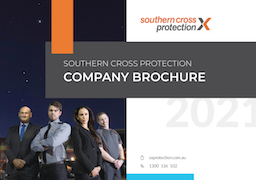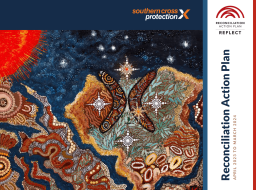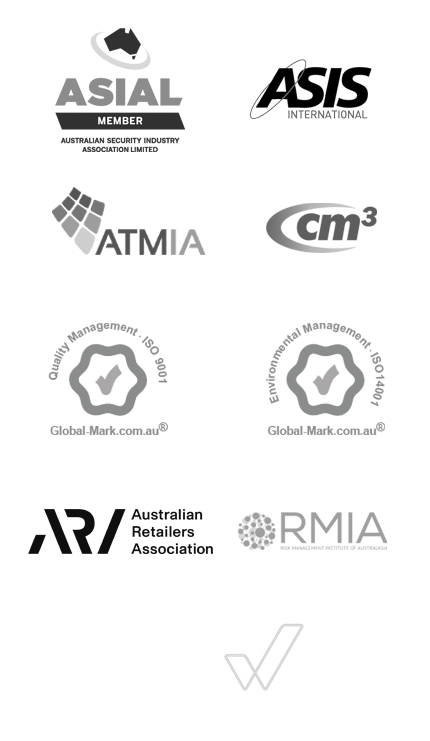Part 2: Leading Australia’s Anti-Terrorism Efforts Back to Grass Roots
There’s a TED Talk by Simon Sinek, based on his book titled Start with Why. If you haven’t at least watched the TED Talk, those 18 minutes could transform your life and your business.
Sinek makes the brilliant observation that every single organisation on the planet knows what they do; some know how they do it; but very few know why they do it. The great leaders that inspire us are the ones that start with why, then work towards how to do it, and only then arrive at what they do.
Perhaps you’re great at what you do. Perhaps you’re a great security professional, a great business person, a great athlete, or a great parent. Perhaps you know everything about what you do, and everything about how you do it. But why do you do what you do? Why do you get out of bed every morning? Why do you work in this industry? Why do you care about anti-terrorism?
In my previous article I proposed that to build our anti-terrorism capabilities, we must begin with three essential core values: Integrity First, Service before Self, and Excellence in All We Do. I also presented the Four Pillars of Capacity Building, introduced to me by the U.S. Navy to develop military training programs for African developing nations: Training & Professionalism, Domain Awareness, Infrastructure, and Response Capability. What I haven’t yet mentioned is that there is another piece that joins it all together: leadership.
In this episode of Raise the Bar, I’ll highlight the importance of leadership to develop the fundamentals of training and professionalism. As you read, it’s important for you to have your why in the backdrop. Why do you work in security?
Since my last writing I had an extraordinary opportunity to work as a zone 2IC for Summernats, Australia’s largest car show with nearly 2000 participating vehicles and over 100,000 patrons over five days. Special thanks to my good friends at Diverse Training Concepts for giving me that incredible opportunity. Wow! I learned so much about our industry in such a short period!
Throughout the event I had approximately 70 security officers I helped oversee, a fairly representative sample of the demographics in our industry. I had officers from diverse nationalities and religions, and I also had officers from very diverse professional backgrounds: IT, engineers, military, and even a PhD whose English was far better than mine will ever be! They all had one thing in common: without exception, every one of them wanted to do a good job. With such a diverse group, the greatest challenge was figuring out how to lead them.
I might digress to mention that I watched two of my officers, foreigners who spoke very broken English, save a man’s life during a medical emergency. Despite the language barrier, they made all the right choices, and I can tell you that you would be extremely lucky to hire officers such as them! This was only the most prominent example, and that week I met many other security officers that were equally extraordinary.
Fast-forward to the final day, after days of observing my officers endure all kinds of disrespect from patrons. I was warned this day would be chaotic; patrons no longer cared if they got evicted, and many would seek to make a glorious exit on their way out the gate. By the third mid-morning incident I decided I had enough. I went out on the road and showed my young officers how to stand a proper guard.
“If you look bored and tired, they will not respect you,” I said to them. “You need to look alert, like you’re ready for anything!” I explained to them exactly what I wanted: stand this way, feet and hands like this; stand tall; chin up; chest up; every time a car drives by, you look that driver in the eye! I’m probably not telling you anything you don’t already know, and I have no doubt they had probably heard it all before, but I don’t believe anyone had ever showed them.
I set up, shall we say, a pseudo-military checkpoint by one of the unattended exit gates. Then I was constantly on the radio to them: take your hands out of your pockets; don’t sit down; stop playing with that water bottle; get off your phone. I didn’t just tell them what to do; I went out there and did it with them. Suddenly something remarkable began to happen before my eyes.
Within 15 minutes they started to vaguely resemble a team. They were standing out there on that road as they had done all week, but something was different now: they were doing it together. They started to show an element of pride, and would you believe, even a hint of self-confidence. And let me tell you, within the hour they were slowly starting to look like professional soldiers!
It was an intimidating sight. I know because I could see the drivers coming from a distance. Some drivers would punch the accelerator with a lead foot, and when they got close enough to see the team of now confident, assertive officers looking them straight in the eye, they immediately jerked their foot off the pedal without anybody having to say a word.
I taught my officers to offset that intimidation by being ultra-friendly in their interactions with patrons. With our body language doing all the commanding, we didn’t have to bark orders at our patrons. I introduced my officers to a revolutionary concept that had previously escaped them: treat your patrons with respect, and they will respect you in return!
We had zero incidents for the remainder of that shift. That’s right, I said zero!
In the military we have something called military bearing, which I believe is a fundamental skill every Australian security professional must be able to master. If you’ve ever served a day in the military, the mere mention of the term should rock you to your core. The U.S. Marine Corps, an organisation which is arguably the world’s leading expert in military bearing, defines it as “the way you conduct and carry yourself. Your manner should reflect alertness, competence, confidence, and control.”
Or to quote an official blog by Sergeant Major Michael S. Burke, it’s an air “… not to be %&@#!* with.” “It’s not just about giving off a bad-ass vibe,” he wrote, “because any thug can be a tough guy. A Marine should be firm, courteous, tactful and leave you with the impression that if the wolf came knocking he’d kick the wolf’s tail for you.”
Exactly how is it that Marines are able to achieve such a high level of professionalism and military bearing, even despite the wide diversity of recruits coming from so many backgrounds and walks of life? Simply put: training.
If you work in security in any capacity, that makes you my brother or sister in arms. Today we might compete for new business; tomorrow we might be called to defend this country. We’ll need that level of comradery to be successful.
As your brother in arms, I need you to understand this: if you’ve ever complained that the people under your command aren’t trained or competent enough to provide a superior level of service to your customers, then I can tell you exactly where to find the problem. Our problem isn’t a people problem; in fact, it isn’t even a regulatory problem. Our problem is a leadership problem, and I believe that’s something we can influence and change.
Throughout my short time in this industry I’ve observed that many of our officers are extremely competent. I’ve seen it with my own eyes! Unfortunately, I’ve also observed that a great many others in our industry are untrained, lack discipline, and lack military bearing. They have all the required licenses and certificates, yet they lack the fundamental skills to be proficient in their duties, and they lack those skills because as an industry we have not yet put the proper structures in place to train them to do their job.
Don’t take my word for it. I highly encourage you to read through the recent report on the Australian Skills Quality Authority’s (ASQA’s) national strategic review of training for the security industry. ASQA conducted this review as a result of reports by Coroners investigating the deaths of patrons at the hands of untrained security officers. Their directive was to identify any areas of systemic poor practice and recommend appropriate solutions.
Of the RTOs that were audited, 80.6% of those offering security training were not fully compliant at the initial audit. Most of them were able to correct the deficiencies, but it should come as no surprise to us that the report concluded the training of security officers across the industry is woefully inadequate.
A recent 7.30 report by the Australian Broadcasting Corporation revealed that “security training is being compromised, with government-approved organisations selling qualifications to people who’ve not done any training at all.”
When I first began this writing endeavour to raise awareness about increasing the level of training and professionalism within our industry, I often felt like a lone voice challenging the status quo. Many of my readers have since shared with me that they too have felt that way at one point or another, often dissipating powerless against the overwhelming current, and maybe that resonates with you at some level. Let me tell you something: it’s OK to be that lone voice, because very quickly I discovered that we’re not alone at all. In fact, I’ve discovered there are many of us who share the same views on this topic, even at very senior levels. So many. Then why aren’t we leading that change?
The question you might be asking is, what does any of this have to do with Anti-Terrorism? Well everything! Before we’ll have a chance at protecting this country from terrorists, we’ll need to earn the respect of the very people we’re trying to protect. In living by the core values of Integrity First, Service before Self, and Excellence in All We Do, then really developing that pillar of Training & Professionalism, it won’t take long for our industry to earn that respect.
Do you know the difference between a novice boxer and a professional? The novice boxer is constantly seeking to learn every advanced technique he can possibly get a hold of, thinking it will give him some mystical edge in the ring. The professional boxer works tirelessly on his fundamentals: his basic footwork, punching and head movement. Anti-terrorism is no different. The only catch is that in our field, we have to lead the training of those fundamentals, day in and day out.
The most obvious heroes are the brave men and women of the ADF, ASIO, ABF, Police, Fire Brigades, Ambulance Services, and other relevant agencies. But assume the home-grown terrorists are already here, because they are. By the time of the first 000 call, it’s already too late, and innocent people have already died. Guess what! If you’re a security officer in this country, that makes you the first line of defence against a terrorist attack, and in my book, that makes you a hero, too.
In response to the recent ASQA report, ASIAL CEO Bryan de Caires released a statement to the media where he said: “as recent global events have shown, we live in changing and challenging times. […] it is vital that the industry has access to appropriately trained personnel with the necessary competencies to perform the duties they are tasked with. The time has come for action and the introduction of a nationally consistent approach to security industry training and licensing.”
I second his call for action.
I for one am proud to be an Australian security officer. I’m proud to stand next to you to protect this great country of ours, now my home as well as yours. We have a lot of great people in our industry who want to do a good job. If we train them well, they will exceed our expectations. If we lead them, they will follow.
My vision for our industry is this: within the next decade, Australia has the most professional, most highly trained security force in the world. And why do we do what we do? Because our country and our loved ones require us to step up to the plate and protect them. What role will you play in helping our industry achieve this?
Read Part 1B of this series here.
Read Part 3 of this series here.
This article appeared in Vol. 21, Issue 1 (Apr-May 2016) of ASIAL’s Security Insider Magazine.
Ben Beville is a Business Development Manager and Security Consultant at Southern Cross Protection. He was formerly a Lieutenant Commander in the U.S. Navy, where he served 11 years active and reserve.






